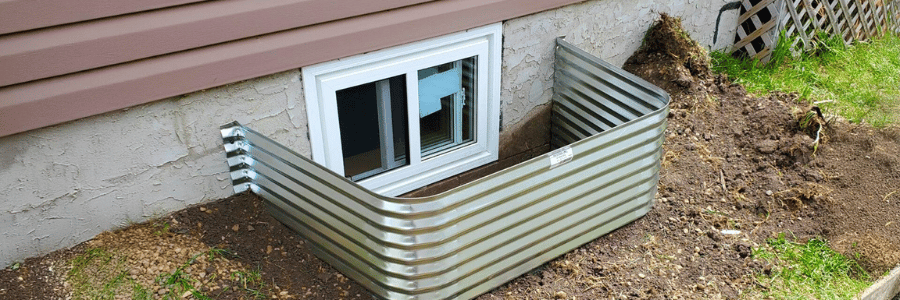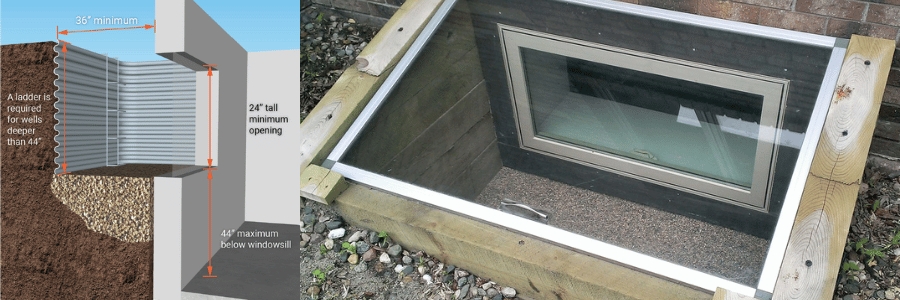When designing or renovating your home, it’s easy to focus on aesthetics, comfort, and functionality, sometimes overlooking essential safety features. One of these crucial elements is the egress window—a window that serves as an emergency exit in case of fire or other emergencies. Egress windows are not only important for the safety of your family but are also required by building codes for certain areas of your home. In this post, we’ll explain why your home needs egress windows, how they enhance safety, and how they help ensure compliance with local building regulations.
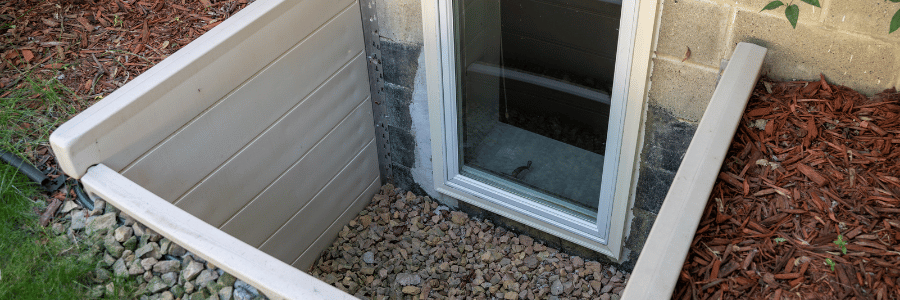
What Is an Egress Window?
An egress window is a window large enough to allow a person to exit through it in the event of an emergency, such as a fire, gas leak, or other dangerous situations that might make other exits inaccessible. Egress windows are typically installed in basements, bedrooms, or any room that is below ground level or where the room is considered a sleeping area. They are designed to provide a safe and quick escape route for occupants, especially when traditional exits like doors may be blocked or inaccessible.
In addition to providing a means of escape, egress windows are often equipped with a well-designed window well to ensure they remain clear and accessible at all times. The size and placement of egress windows are carefully regulated by local building codes to ensure they meet safety standards.
1. Egress Windows Enhance Home Safety
The primary reason to install egress windows in your home is to improve safety. While we hope to never face an emergency situation, the reality is that accidents can happen, and fires are unpredictable. In the event of a fire, having an egress window can mean the difference between life and death. Here’s how egress windows can enhance home safety:
- Escape in Emergencies: During a fire or any situation where you cannot exit through the door, an egress window provides an alternative exit route. For homes with basements or lower-level rooms, these windows are essential in providing a means of escape, especially when traditional doors are blocked by fire, debris, or other hazards.
- Protecting Sleeping Areas: Egress windows are especially important in bedrooms and sleeping areas, where individuals may not be aware of a fire until it’s too late. A large, accessible window allows people to quickly exit or escape smoke and fumes by climbing out and away from the building.
- Sufficient Ventilation During Fire or Smoke: In addition to providing an escape route, an egress window helps to create airflow during a fire or emergency, allowing fresh air to enter while smoke escapes. This can be especially critical in basements or rooms without proper ventilation.
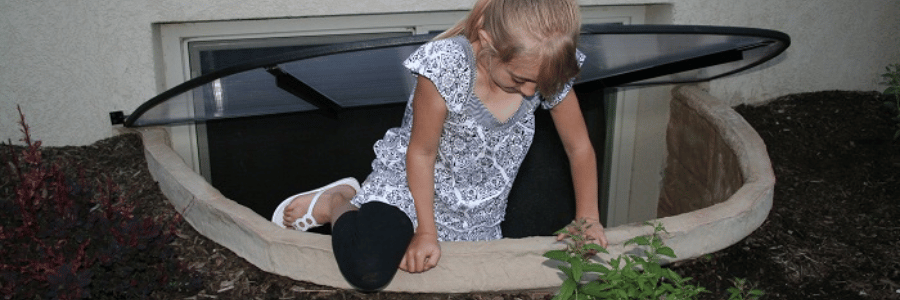
2. Egress Windows Are Required by Building Codes
If you’re building or renovating your home, especially in areas like basements or lower-level rooms, local building codes may require you to install egress windows. These codes exist to ensure that homes are safe and that there is a clear, accessible route of escape in case of an emergency. Here’s why egress windows are legally required:
- Code Compliance: Most building codes—such as the International Residential Code (IRC)—specify the need for egress windows in any room used for sleeping, including basements, attics, and even some above-ground rooms if they’re below a certain level. These regulations are in place to protect the safety of everyone in the home, ensuring that they can safely exit in an emergency.
- Minimum Size Requirements: The size of an egress window is regulated by code to ensure that it’s large enough for a person to exit easily. For example, in many areas, the window must have a minimum clear opening of 5.7 square feet, with a height of at least 24 inches and a width of 20 inches. These requirements ensure that people of all sizes, including children, elderly individuals, and those with limited mobility, can escape through the window if necessary.
- Window Well Regulations: If your egress window is below ground level, it must be paired with a window well. These wells must be deep enough to allow for a safe exit and designed to prevent obstruction from dirt, snow, or debris. In some regions, the well must also be equipped with a ladder or steps to help people climb out easily.
- Compliance with Local Laws: Different areas may have slightly different codes and requirements for egress windows. In some places, older homes may be “grandfathered in,” meaning they aren’t required to have egress windows if they were built before certain laws were passed. However, if you’re renovating or adding a bedroom or finished space, the addition must meet current building code standards.
Failure to install egress windows where required can result in a building permit violation, and in the event of an emergency, failure to comply with code requirements could lead to liability issues.
3. Egress Windows Can Increase Your Home’s Value
In addition to safety and compliance benefits, installing egress windows can have a positive impact on your home’s value, especially if you’re planning to sell in the future. Here’s why:
- Finished Basement Appeal: If you have a basement or lower-level living space, an egress window can turn an otherwise unusable space into a functional, safe bedroom or living area. By transforming your basement into a legal, habitable space, you not only add square footage to your home but also increase its market value.
- Added Living Space: Having egress windows in basements or other lower-level rooms allows you to legally rent out the space as a separate apartment or guest suite. This can make your home more attractive to buyers who are looking for extra income potential or larger living spaces.
- Increased Buyer Confidence: When potential buyers know that your home complies with egress window codes, they’ll have greater confidence in its safety. Homes with egress windows are seen as more modern and up-to-code, which can make them easier to sell.
- Enhanced Aesthetic Appeal: Egress windows can also add an element of style to your home’s exterior. With the right design and placement, they can provide additional natural light, improve ventilation, and even become a beautiful focal point for your landscaping.
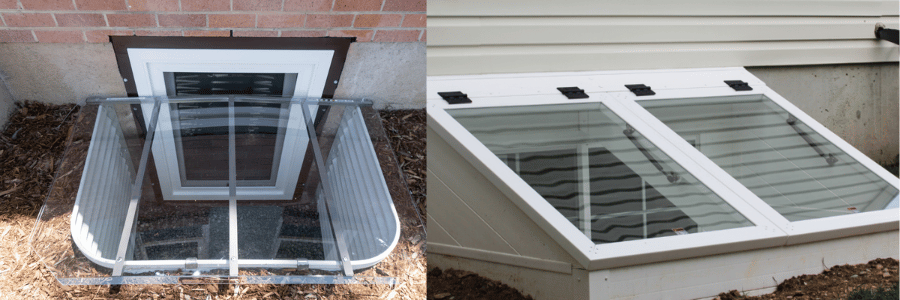
4. Egress Windows Improve Natural Light and Ventilation
Aside from their safety function, egress windows provide many additional benefits related to the comfort and livability of your home, especially in basements and lower-level rooms that can feel dark and cramped without them:
- More Natural Light: Basements and lower-level rooms often lack adequate natural light, making them feel isolated or even claustrophobic. Egress windows allow more sunlight into these areas, brightening up the space and making it more inviting and livable. This is especially important if you plan to use the space for a bedroom, family room, or office.
- Better Ventilation: Having a window that opens fully can dramatically improve ventilation, helping to circulate fresh air into basement spaces that are prone to dampness, humidity, or musty odors. Proper ventilation is also key to maintaining healthy indoor air quality and preventing mold growth.
- Comfortable Living Spaces: With increased light and airflow, rooms with egress windows become more comfortable to live in. This can increase your enjoyment of the space, whether it’s a finished basement or a bedroom that would otherwise feel like a basement cave.
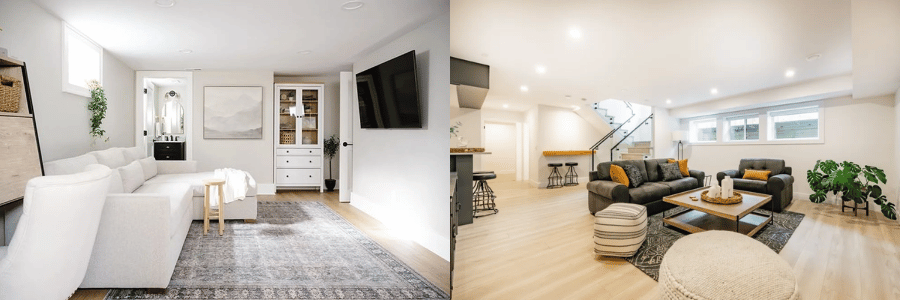
5. Choosing the Right Egress Window for Your Home
If you’re ready to install egress windows, it’s important to choose the right type of window for your home. While the size and placement of the window are dictated by building codes, the style and material of the window can be more flexible:
- Window Types:
- Sliding Windows: These are ideal for larger openings and offer wide horizontal space. Sliding windows can be easy to open and are often a good choice for basement egress windows.
- Casement Windows: Casement windows, which open outward like a door, are another excellent choice for egress windows. They provide a larger opening for escape and can be easy to operate, especially for people with mobility challenges.
- Awning Windows: These windows open outward from the top, providing good ventilation while still protecting the opening from rain. They’re a good option for egress windows in areas with a lot of rainfall.
- Professional Installation: Installing egress windows isn’t a DIY project for most homeowners. It requires expertise to ensure the windows meet local codes and are safely installed. A professional can also help with the excavation of window wells, which may require digging or modification of your home’s exterior.
- Window Well Features: If your egress window requires a window well, it’s important to choose a well that’s large enough to allow for safe egress. You may also want to add safety features like ladders or stairs, as well as drainage systems to prevent water buildup.
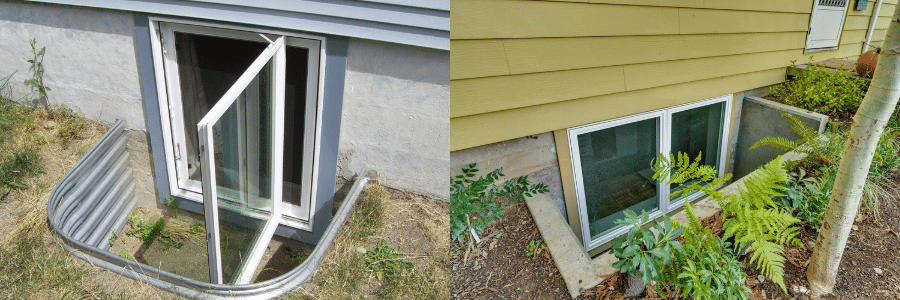
Conclusion
Egress windows are more than just a legal requirement—they are a vital safety feature that can make your home safer, more comfortable, and more valuable. Whether you’re finishing a basement, adding a bedroom, or simply looking to ensure your home is up to code, egress windows provide peace of mind knowing that you and your loved ones can safely exit in an emergency. With the right design, placement, and professional installation, egress windows offer both functional and aesthetic benefits that enhance the livability and safety of your home for years to come.

